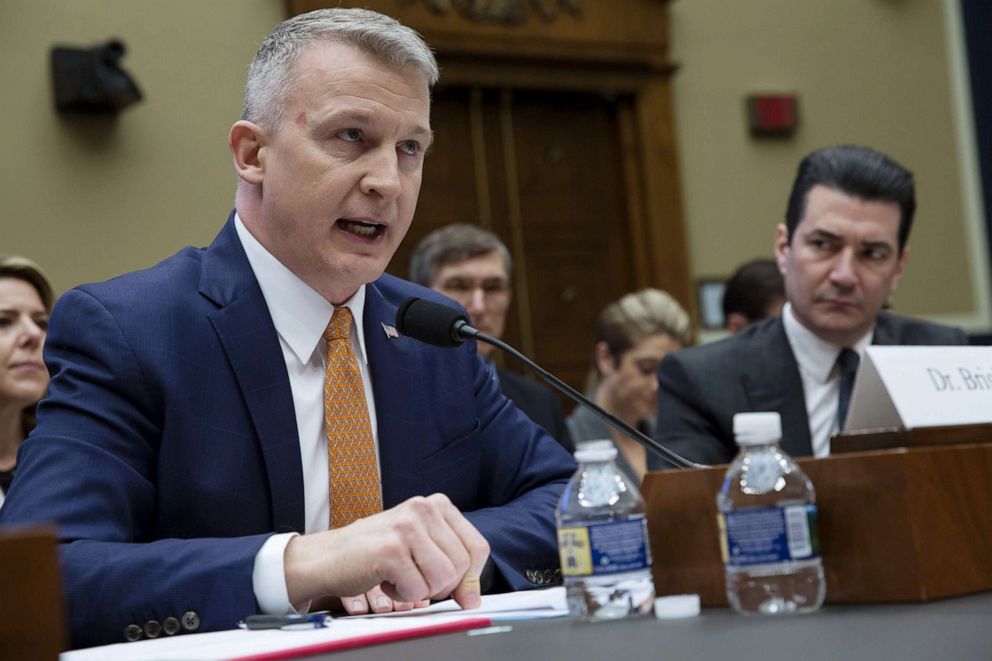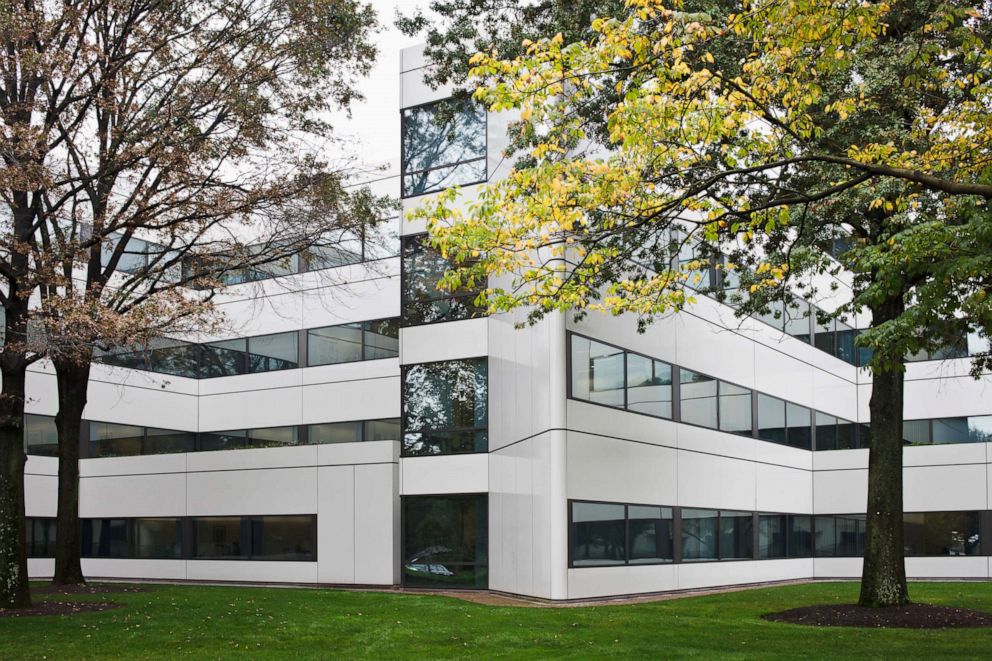When coronavirus vaccine arrives, experts worry US not ready to mass produce
Ex-Obama health chief: Don't repeat failures, make vaccine decisions "now."
As dozens of labs around the world scramble to develop a coronavirus vaccine, health experts and Democratic lawmakers are growing increasingly worried about America's ability to manufacture and distribute a vaccine on a mass scale -- warning that any delays could hinder a recovery the same way testing missteps have hindered efforts to stop the virus' spread.
Kathleen Sebelius, the Health and Human Services Secretary during the Obama administration, said she is concerned the slow progress on mass coronavirus testing and the current shortage medical supplies could signal trouble for vaccines in the future.
“The shortages that have been happening right now are going to be even more dominant once we get treatments and vaccines,” she said. “There is never going to be enough vaccine at the front end to vaccinate everybody, and the decisions about where the vaccine goes and who gets it first need to happen right now.”
The agency responsible for leading the charge on the production and purchase of vaccines is a small, little-known government agency called BARDA -- short for the Biomedical and Advanced Research and Development Authority -- part of the Health and Human Services Office of the Assistant Secretary for Preparedness and Response. BARDA just recently received $3.5 billion in funding from the coronavirus stimulus bill to support the effort.
But medical experts and sources familiar with the organization are privately raising concerns. The agency entered the pandemic crisis with a strategic plan that had not been updated since 2016, and medical experts, who have requested anonymity to speak candidly about the matter, said more funding does not mean they will be able to catch up in time.
"Where has the investment been going for pandemic preparedness?" asked one infectious disease expert familiar with the agency's operations.
When asked for the agency’s updated plan, BARDA director Rick Bright told ABC News in a statement that the agency’s goals are “woven into the [2018] National Biodefense Strategy, the National Health Security Strategy and Implementation Plan, and the Public Health Medical Countermeasures Enterprise multi-year budget.”
“Vaccine technology development and manufacturing initiatives begun 10 years ago and have continued towards national preparedness goals,” Bright said.
Sen. Patty Murray, D-Wash., told ABC News she "certainly [had] concerns" about the potential mass production of vaccines after watching what she said were the Trump administration's "many mistakes and delays" in ramping up coronavirus testing, which experts say are still in too short supply in many parts of the country.
"President Trump’s failure to put together a federal plan for testing that provides adequate funding, optimizes our supply chain, ensures distribution to every community, and is supported by robust public health efforts, is a disaster we can’t afford to leave unaddressed—and one we absolutely can’t afford to repeat with a vaccine down the line,” she said in a statement.

Trump has defended his administration's response to the coronavirus, though his early claims that anyone who wants a test could get one have shown to be far beyond U.S. capabilities, even weeks later. States and cities currently have restrictions in place to ration testing for the most vulnerable. Vice President Mike Pence said Wednesday more than 3.3 million tests had been conducted nationwide and the availability of testing has improved.
While some human trials are already underway and some labs hope to have discovered a viable vaccine within months, Dr. Anthony Fauci, the country's leading infectious disease expert, has said he doesn't expect a vaccine to be "deployable" for at least a year.
"So, [the president's] asking the question when is it going to be deployable? And that is going to be, at the earliest, a year to a year and a half no matter how fast you go,” Fauci said during a meeting with pharmaceutical company executives at the White House last month.
Lessons learned, then forgotten?
Sebelius experienced firsthand the full effects of a lack of manufacturing capacity during the H1N1 flu in 2009 when the U.S. did not have the capability to produce vaccines for the entire population.
"We were scrambling for contracts with other countries and other facilities, and not surprisingly, people wanted capability for their own countries first,” Sebelius recalled. “We were often in line behind other places in the world, and that was a tricky place to be."
But a major initiative launched after the H1N1 outbreak to prevent another bottleneck in the supply chain appears to have crumbled.
Four federally funded vaccine manufacturing sites in Florida, Maryland, North Carolina and Texas were established and designed to manufacture 150 million doses within three months of a pandemic being declared. But only one is in operation now, Bright said, and experts fear all four haven't been properly maintained over the years.
According to the Washington Post, the assistant secretary for preparedness and response for HHS, Robert Kadlec conducted two reviews of the sites beginning in 2017. The Post reported that Kadlec raised concerns about the sites' shortcomings October 2018 at a conference in Washington, D.C. with industry experts.
The “operational capability has not been adequately developed and must be” improved at these sites “to meet biodefense MCM [medical countermeasures] mission requirements” Kadlec’s team said, according to the Post.
Sen. Chris Coons, D-Del., described the condition of those government manufacturing sites now as a “mixed bag.”
In an interview with ABC News, Coons compared their condition to the Strategic National Stockpile of masks, ventilators and other supplies, a reserve of equipment that was not sufficiently stocked to handle the crush of need, and included outdated or expired equipment. Coons is a member of the Senate Appropriations Committee and has helped secure funding for vaccine manufacturing.
“It happens that the national stockpile that was not as modern and complete and thorough as it should have been,” Coons said. “We cannot afford to make the same mistakes in the approval and deployment of therapeutics and vaccines.”
Private industry ramps up
The ability to find and manufacture a coronavirus vaccine is an important component of any recovery, Fauci has said, and the country will not be able to return to normal life until a vaccine is available.
"I feel confident that, over a period of time, we will get a good vaccine that we will never have to get back to where we are right back now. So if that means getting back to normal, then we'll get back to normal," Fauci said last week.
BARDA has turned a significant amount of attention to private industry, where most of the vaccine manufacturing capacity in the U.S. exists. On March 30, BARDA officials announced they were working with Janssen Research & Development, part of Johnson & Johnson, and Moderna of Cambridge, Massachusetts in order to “speed the development and manufacturing of vaccines to prevent COVID-19.”
Another initiative was the establishment of a network that could address one of the major bottlenecks of vaccine manufacturing: the lack of capacity to rapidly "fill and finish" – meaning putting the vaccine in to a vial and packaging it -- in sufficient quantities for the nation. HHS awarded contracts in 2013 and 2016 to six pre-existing and qualified companies who could finish the fill and finish of vaccines in a public health emergency. The newly established network would support 117 million addition vaccines in the event of a pandemic.
Bright told ABC News that these contracts are still in place and the companies “are prepared to begin manufacturing vaccine if needed.”
“BARDA staff contacted these companies in early March in preparation and anticipation of needing their services, and all were ready to assist,” he said.
Vaccine development typically requires multiple phases of clinical trials before any preparation can be made for manufacturing. But experts said the urgent needs created by the coronavirus pandemic mean the nation needs to plot out a manufacturing and distribution plan even before a vaccine is developed.

Together, BARDA and Johnson and Johnson have invested nearly $1 billion in vaccine manufacturing before even entering into clinical trials. The company says this effort will enable them to produce up to 300 million vaccines in the U.S. -- a few million shy of one for each American -- by the end of 2020 and 600 million doses globally. The essential but costly up-front investment means the company is making an enormous gamble on its ability to produce a vaccine.
To meet expected need, the company says it is preparing for vaccine production at its factory in the Netherlands and at the same time is actively scouting locations in the U.S. and Asia to build two additional production plants.
"The team is moving as fast as they can to progress the manufacturing, but we’re still in very early days of trying to ramp up this production" the Vice President of medical affairs at Janssen Infectious Diseases, Dr. Richard Nettles, told ABC News. “There is a long road ahead but we are making fast progress.”
But there are more than 80 efforts underway around the world to develop a vaccine and Johnson and Johnson has not committed to use its facilities to manufacture another company’s vaccine should someone else develop one first.
“Our focus right now is on scaling up manufacturing of our lead candidate vaccine and initiating Phase 1 research as soon as possible,” James Smither-Plenderleith, a spokesperson for the company, said in a statement, explaining that the company is working with local and international health authorities so when a vaccine is developed and approved, it can be distributed on a large scale.
The problem reflects a broader issue in the race to develop and manufacture a coronavirus vaccine. Without any global agreements in place to encourage collaboration, the effort has a sizable profit motive, with vaccine developers standing to make billions of dollars. Jack Kingston, a former United States congressman from Georgia, acknowledged the profit motivation to develop a vaccine and distribute it, describing it as a “secret formula.”
“Once the vaccine is approved and up and running, the patent holder gets the secret formula to manufacture, make and distribute it,” Kingston told ABC News.
President Trump would still have the ability to use the Defense Production Act (DPA) to require companies to pitch in and expand capacity to manufacture and distribute a vaccine, Kingston said. But scaling up manufacturing capacity is a complicated and arduous process, which can take years and cost hundreds of millions of dollars.
Dr. Robert Hopkins Jr. a professor of internal medicine at the University of Arkansas for Medical Sciences, said advances in science have improved U.S. capabilities in recent years, but there is still a long way to go.
"Is it enough?” Hopkins asked. “That's the million-dollar question.”
“Based on where we are right now, it’s never going to be quick enough. As much as I would like us to have 330 million doses available in weeks, I think that's probably more than we can expect," he said.
ABC News' Tiffany Kung contributed to this report.




